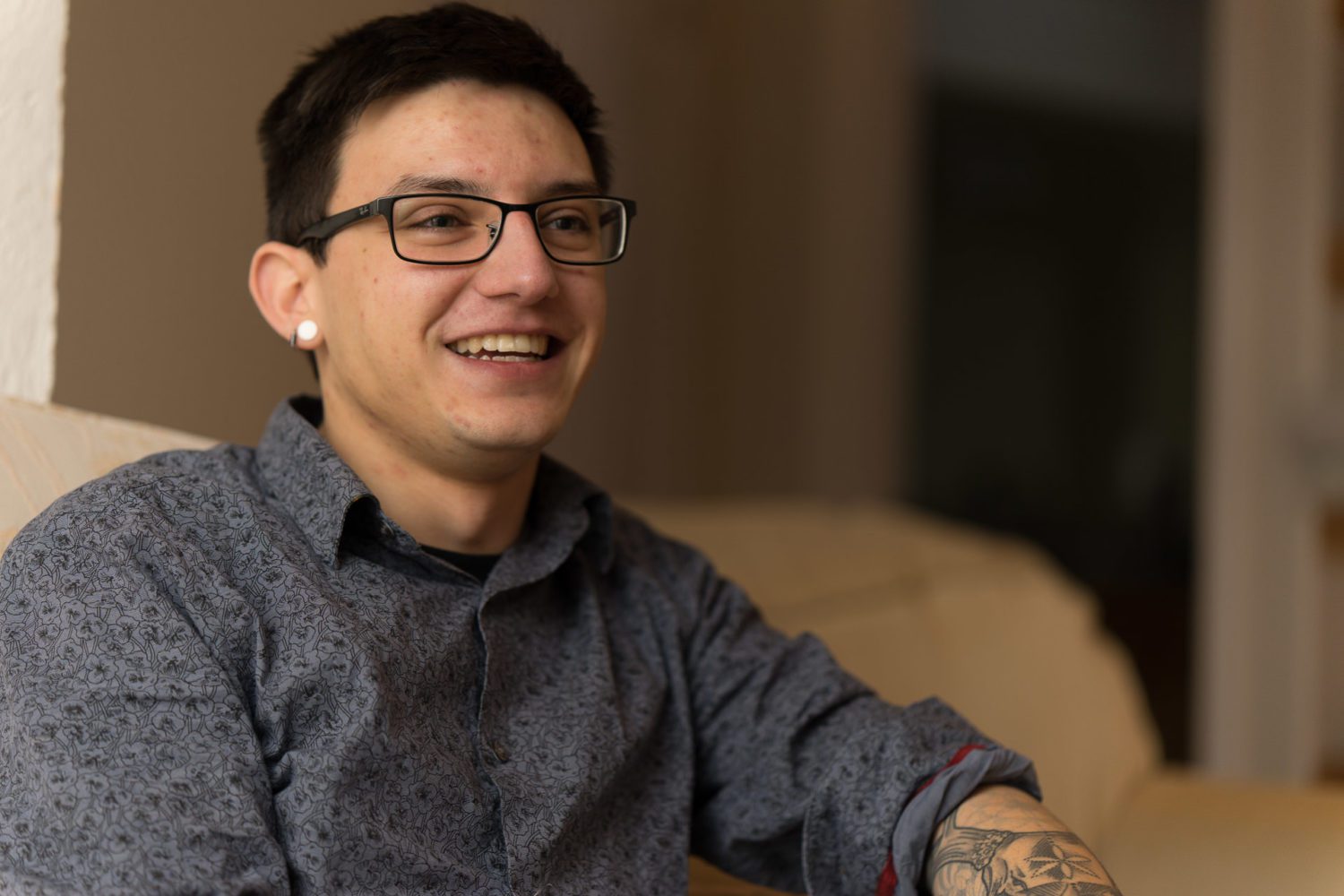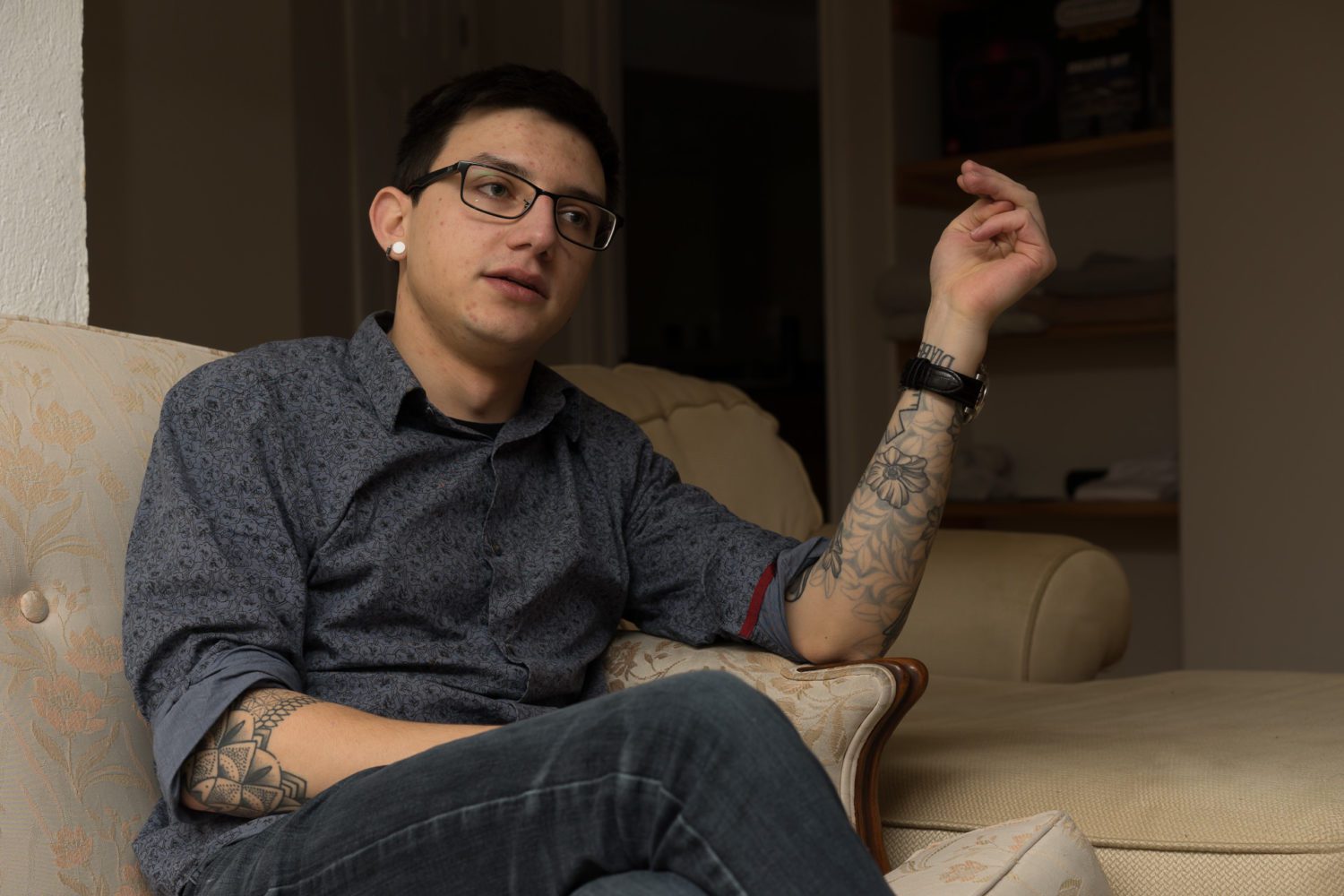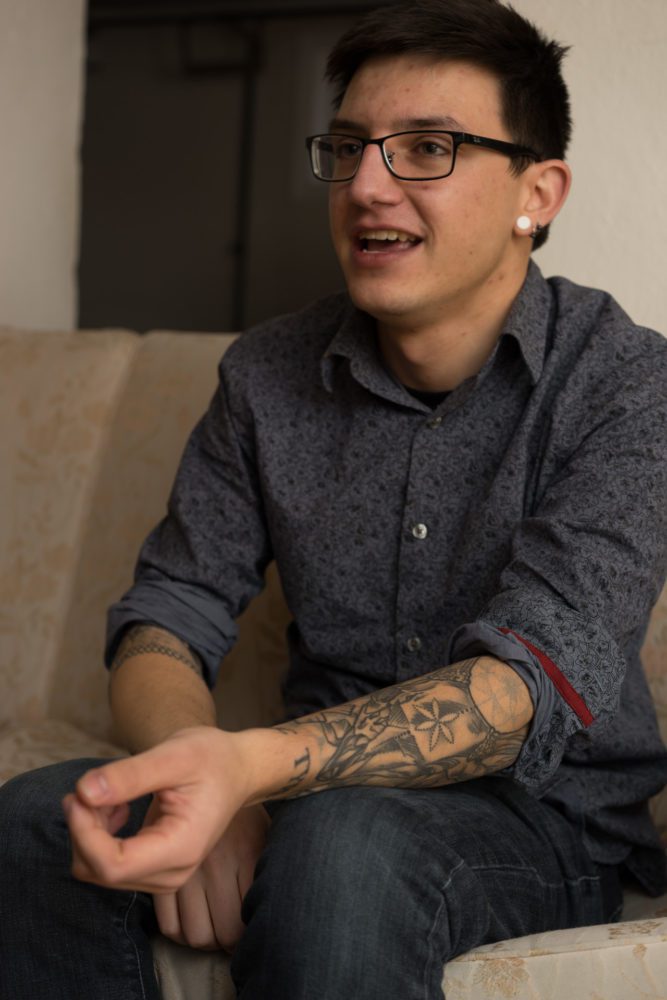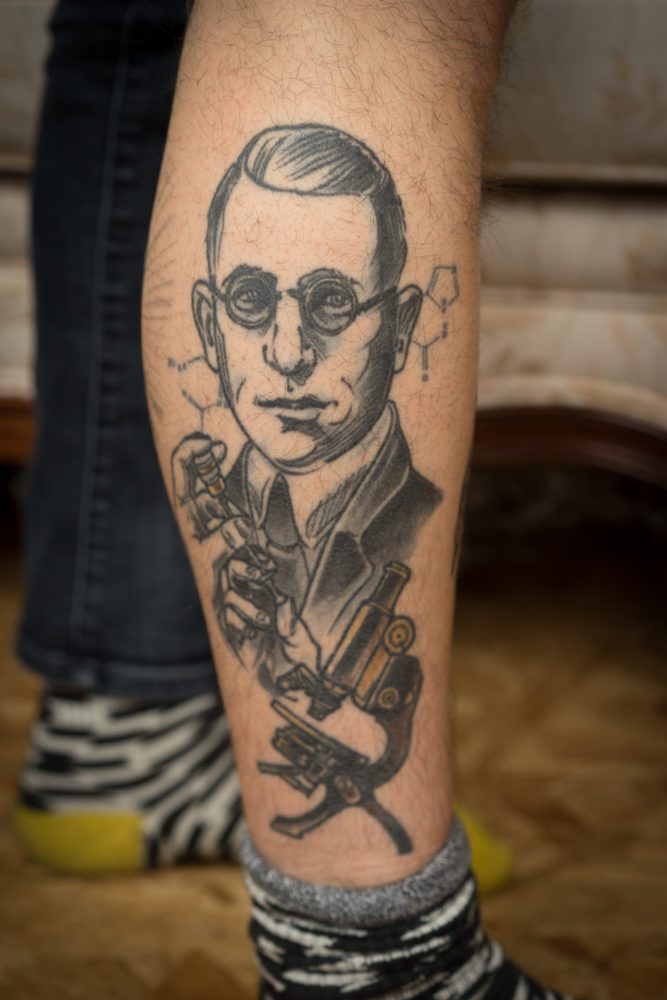Matt is a personal support worker for Drew Cumpson, a young man who broke his neck in an accident and is quadriplegic, dependent on a ventilator and living at home. Drew funds his PSWs through the Direct Funding program.
Why did you become a personal support worker?
I was desperate for a job. I looked on Kijjiji and I saw a whole bunch of personal support worker positions. I knew I wanted to work with people and Drew was looking for help with his transition from hospital to home. I didn’t think I would get the position because I didn’t have any trach training. Luckily he contacted me. He wants people he gets along with because he’s with his workers for eight or 16 hours straight. We got along really well and I loved it right away.
I was terrified for the first month. The overnight shifts! You are allowed to sleep but you still have to be very vigilant. He gets uncomfortable in the night. He has call bells and other systems in place so you wake up. But I think it was a month before I was able to get an hour of sleep at night.
People who start working for him are given the overnight shift as a test. He knows just through that small interaction if it isn’t going to work. When he hires someone he has two training days to make sure that they are comfortable with the equipment. If his trach pops off and they don’t know what to do, he dies. Being incompetent is not an option.

I just straight-up love working with Drew. I get to help him be as independent as he possibly can. I have stuck around with him for so long because we’ve developed a friendship, plus he makes the work fun!
I’m not doing this for the money. I am comfortable living in a basement with three roommates. I don’t mind making basically minimum wage. Do we deserve to be paid like this? I don’t think so. Every single personal support worker I know has a second job. A lot of people have kids and are trying to support them. They are working 60 hours a week at one job and 20 hours a week at another. Some agencies pay their personal support workers quite well, upwards of $30 an hour, but the hours at those agencies can be sporadic and the agencies themselves can be mismanaged.
What I find funny is that by having Drew live at home, the health care system saves over $200,000 a year in expenses. It’s a lot of money, but his care team doesn’t see any of it.
New staff have two days of training to make sure they’re comfortable with the equipment. If his trach pops off and they don’t know what to do, he dies. Being incompetent is not an option.
There are no standardized training requirements for PSWs. It should be a regulated profession such as nursing or other jobs in health care. PSWs should be able to provide competent and consistent health care across the board.
A lot of the home care is not through agencies. People pay privately. They are willing to spend X amount of dollars to help toilet their loved one which is totally understandable. If you have a wife or a son, you still want to maintain a healthy relationship with them, and a big part of that is separating yourself from from the care involved with maintaining your loved one’s well-being. Drew had an accident when he was 20 years old. I can’t see anyone that young feeling comfortable with a family member cleaning them up in the morning. It’s an incredibly important job for the comfort of the people receiving care and their family.
Have you observed discrimination against Drew because of his disability?
For the most part people are incredibly helpful. For example, when I was in Mexico with Drew he wanted to go to a disco and there was no ramp. The security guards and others lifted Drew seated in his chair up into the disco and then back down again when he wanted to leave. That was no easy feat. It’s pretty impressive what people will do.
Another funny thing is, at almost every concert we go to, there is some huge inebriated guy who wants to be Drew’s protector. The person will try and create a ring around Drew. It’s pretty comical.
Drew is in bed for the majority of the day, so he is on his computer a lot. People can be really rude online. The other week he put up a post about Kingston not doing its job cleaning snow from the sidewalks. For him that’s incredibly frustrating. He can’t roll down the street when they are not plowed. But there’s ableism out there, “You are disabled so you shouldn’t be going out!” There have been a lot of ridiculous comments.

Keeping Drew at home saves the health care system over $200,000 a year. It’s a lot of money, but his care team doesn’t see any of that.
I was diagnosed with diabetes five years ago. I think it’s important to talk about, and it’s what got me into tattoos. My first tattoo, the one around my wrist says “Type 1 Diabetic,” and I have the medic alert symbol. I used to have a medic alert bracelet, but would take it off at night and forget to put it back on. I have a tattoo of Sir Frederick Banting, one the creators of insulin. It’s my tribute to everyone struggling with the disease around the world.
There is a deer, too. I think it’s kind of corny now but the deer is half alive and half dead. It was to symbolize my struggle with diabetes when I was first diagnosed. I went low frequently and struggled maintaining my sugars. If you go low and pass out with no one around, you aren’t going to be living very long. I also had trouble sleeping at night because I was worried I wouldn’t wake up. This terrified me. My stepdad stayed home to help me manage my diabetes and give me injections for the first two months after I was diagnosed. I will be forever grateful to him. Now I am much, much better.




The comments section is closed.